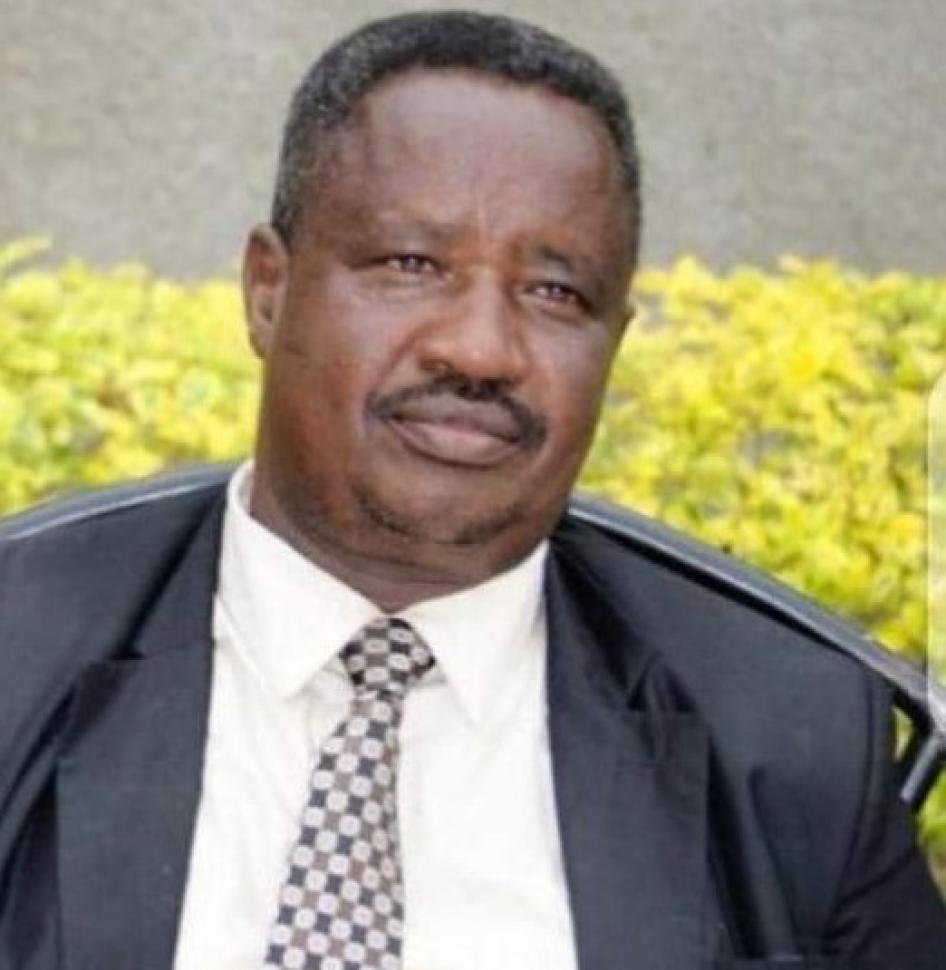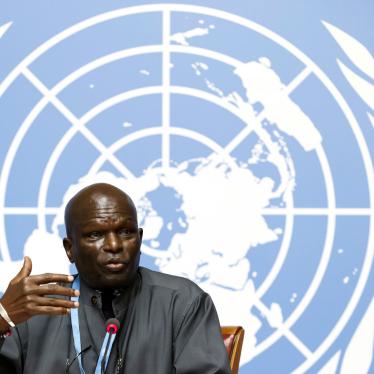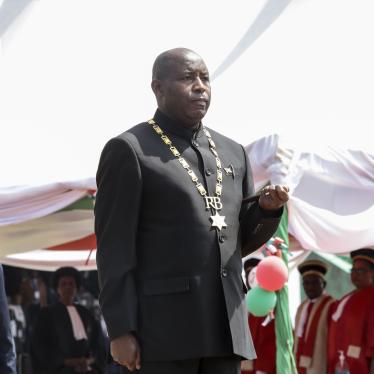Hopes that a new president may reverse a repressive course in Burundi seem increasingly misplaced.
The Burundian judicial authorities’ decision to prosecute a former independent member of parliament – who is known for being an outspoken defender of human rights – is the latest in a series of worrying signs. Fabien Banciryanino, who represented Bubanza province before this year’s elections, is facing charges of threatening state security, slander, and rebellion.
On October 2, a local administrative official and a dozen policemen shut down a press conference at Banciryanino’s home in Bujumbura and ordered him to report to a police detention center known as the Special Research Office (Bureau spécial de recherche). On October 8, a judge at Ntahangwa Appeals Court denied his request for provisional release and officially placed him under arrest. He was transferred to Mpimba, Bujumbura’s central prison, where he has reportedly been forced to stand in the sun for at least an hour, despite his poor health, as “punishment.”
In February, Banciryanino voted against a law giving then-President Pierre Nkurunziza the official status of “Supreme Guide of Patriotism.” He argued that “There have been numerous murders; bodies were thrown into the rivers while others were buried after mutilation… [Nkurunziza] could instead be prosecuted.” On October 7, Banciryanino wrote a letter to Burundi’s National Independent Human Rights Commission (Commission nationale indépendante des droits de l’homme, CNIDH) arguing that he was being prosecuted for his constitutionally-protected speeches in Parliament.
Prosecuting Banciryanino for calling for accountability for human rights violations would violate his right to free speech. Prosecutors should present compelling evidence linking Banciryanino’s actions or statements to the serious accusations he is facing and justifying his detention or release him unconditionally, otherwise this arrest will send a deliberately chilling message to politicians across the board.
Burundi’s new president, Évariste Ndayishimiye, was sworn into office in June following disputed elections and former president Nkurunziza’s unexpected death earlier that month. Since then, Burundian civil society has documented almost 200 killings. Last week, Burundi rejected the United Nations Human Rights Council’s decision to renew the mandate of the UN Commission of Inquiry on Burundi, claiming it was politicized.
The arrest of Banciryanino demonstrates all too starkly the price to pay for speaking out against abuse in Burundi. It’s clear that international scrutiny is more necessary than ever.










